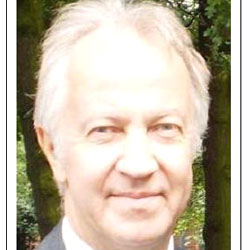Can Politics be Separated from Sport? Platini Thinks So – Keir Radnedge
June 20, 2013
Can politics be separated from sport? It’s a tough ask since politics of one sort or another feature in the power matrix of about every governing body.
Football, notoriously after events within FIFA over the last few years, is no exception. But Michel Platini, one of the world body’s vice-presidents and leader of UEFA, believes it is possible to draw a line between the political and sporting spheres.
Platini set out his strategy this week in Jerusalem at the conclusion of the European Under-21 Championship whose staging in Israel had proved a magnet for pro-Palestinian demonstrations.
The Frenchman insisted that Israel had the same rights and duties as all the other 53 members of the UEFA football family. He wanted young people to enjoy the same football opportunities in Israel just as in every other European country – and also in Palestine.
UEFA always knew, after being persuaded by influential IFA president Avi Luzon to take the finals to Israel, that it could be a bumpy ride. Troubles in Gaza and then a steady series of pro-Palestinian demonstrations – including at UEFA Congress in London last month – provided mere confirmation.
But Platini maintained the course on which he had steered UEFA last year concerning Ukraine’s co-hosting of Euro 2012 amid a boycott from European Union politicians. That course involves ignoring issues on the ground and focusing only on the football.
In Jerusalem, on the morning of Tuesday’s final, he expounded on his creed.

Platini said: “I would like the football world to be peaceful where people can play peacefully and amicably. I’m familiar with the reality but, for young people and for everyone, football is something that should be good for them all.
“It’s the most powerful sport in the world today so some people take advantage of football’s popularity and – with a lot of journalists and media around – use this as leverage for other purposes such as economic and commercial reasons.
“The popularity of football allows this to happen. I would prefer people not to take football hostage. Before the finals in Ukraine people said maybe you shouldn’t go there but we kept on going and it’s been the same in Israel.
“We had problems with people from Palestine who didn’t want us to come. It’s their right to demonstrate but we also think it’s our right to do what is good for football and not for politics.
“I want children in Israel to play football as they do in other countries and I will not be dragged into political issues because an organisation such as ours should focus on the development of football and leave politics to the politicians.”
Platini’s ability to explain not merely policy but also detail will be tested as never before over the coming year as UEFA approaches the break-even deadline for clubs under the terms of financial fair play.
An example of confusion in the world at large was evidenced by a question put to him in Jerusalem about UEFA’s stance on the high-spending strategy adopted by newly-revived Monaco after the refinancing by Russian fertiliser tycoon Dmitry Rybolovlev.
Platini was constrained to point out, in response, that the exigencies of FFP apply only to those clubs which qualify for European competition – and Monaco do not.
With that he was off, to more meetings, matches, presentations and an official banquet. Politics, diplomacy, finance . . . just another day in the life of leading international sports administrator.
Keir Radnedge has been covering football worldwide for more than 40 years, writing 33 books, from tournament guides to comprehensive encyclopedias, aimed at all ages.
His journalism career included The Daily Mail for 20 years as well as The Guardian and other national newspapers and magazines in the UK and around the world. He is a former editor, and remains a lead columnist, with World Soccer, generally recognised as the premier English language magazine on global football.
In addition to his writing, Keir has been a regular analyst for BBC radio and television, Sky Sports, Sky News, Aljazeera and CNN.
Keir Radnedge’s Twitter: @KeirRadnedge
{jcomments on}



